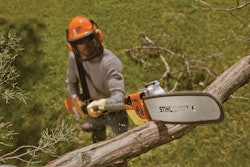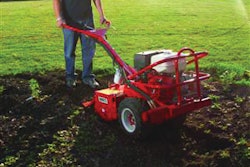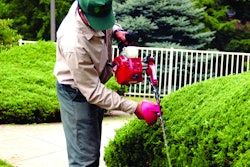
To date, 30 states and the District of Columbia now allow marijuana use for medical and/or recreational use. Additionally, 16 more states legalized the inclusion of cannabidiols (CBDs) to be used in various forms.
But even before states and local governments across the country started legalizing marijuana for recreational or medical use, it was having an impact on hiring and recruiting in the green industry. Employers who ignore the issue do so to their own detriment.
Recreational Use
First, let’s break the issue down into two different components: recreational use versus medical use. So far, no state court system is refusing to acknowledge an employer’s right to prohibit impairment on the job. This means that landscape contractors can drug test on a pre-employment and random basis, and refuse to hire or terminate someone who is impaired by recreational marijuana use. This is likely going to continue to be the case so long as the federal government continues its current stand, making marijuana a controlled substance with limited medical value. So, as a practical matter, landscape contractors should continue pre-employment and random drug testing even in states that have legalized recreational marijuana use.
One problem that may arise is determining impairment. Here, landscape contractors should work closely with their occupational medicine clinic. If at all possible, contractors should not make an impairment determination on their own, but instead should rely upon an evaluation by a medical professional. This is also important because impairment and drug testing results do not correlate well. In other words, an individual may test positive for marijuana use days or even weeks after impairment. This makes it all the more critical for landscape contractors to rely upon the independent impairment determination of a qualified medical professional. Note that this is only necessary in states that have legalized use of marijuana. In other states, landscape contractors can rely upon the drug-testing results, and make the decision not to hire or to terminate the individual.
Medical Use
In states that have sanctioned medical use of marijuana, the situation is slightly different. In most cases, the individual indicates before testing that he or she is a medical marijuana user, and usually presents a medical card issued by the state of documentation from a physician. Last summer, a Massachusetts court held that an employee who acknowledged medical use of marijuana and was terminated for a positive drug test could state a claim for disability discrimination. In essence, the court said that the employer must go through the disability claim process, using the reasonable accommodation analysis, before taking final action.
As part of the reasonable accommodation analysis, the employer may claim that the accommodation the individual seeks would impose an undue burden. The Massachusetts court noted that, if the employer is subject to Department of Transportation drug-free workplace regulations, or can otherwise prove that the individual’s medical use of marijuana would impair performance or pose an unacceptably significant safety risk to the public, the individual or co-workers, the employer’s undue burden claim would prevail.
Here, again, close cooperation with an occupational medicine clinic is paramount. A medical professional may be the landscape contractor’s best defense against a wrongful termination claim. The defense is strengthened if the medical professional understands and takes into consideration the performance impairment issue, but also if the medical professional understands the safety risk created by continued employment.
The bottom line for landscape contractors is know your state law. In states where no marijuana reform legislation has been enacted, test and rely upon the test results. In states where medical marijuana is legal, test but follow the disability claims analysis if the individual asserts medical use. Again, make certain to work closely with a medical professional who is well aware of the individual’s job and safety factors. In states that have also legalized recreational use, work closely with the medical professional to obtain an independent impairment determination.
Of course, none of this guarantees drug-free workers, but at least it is safer to refuse to hire or terminate impaired workers, and avoid wrongful termination lawsuits even in states that are legalizing marijuana use.

![Doosan Bobcat Wacker Neuson Stack 2ec Js Pb V6e[1]](https://img.greenindustrypros.com/mindful/acbm/workspaces/default/uploads/2025/12/doosan-bobcat-wacker-neuson-stack2ecjspbv6e1.CPyyz8ubHn.png?auto=format%2Ccompress&bg=fff&fill-color=fff&fit=fill&h=100&q=70&w=100)








![Doosan Bobcat Wacker Neuson Stack 2ec Js Pb V6e[1]](https://img.greenindustrypros.com/mindful/acbm/workspaces/default/uploads/2025/12/doosan-bobcat-wacker-neuson-stack2ecjspbv6e1.CPyyz8ubHn.png?ar=16%3A9&auto=format%2Ccompress&bg=fff&fill-color=fff&fit=fill&h=135&q=70&w=240)








